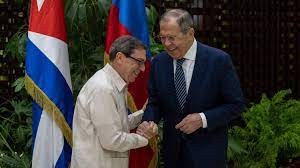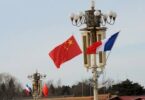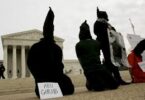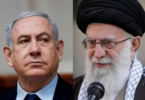Jeremi Suri
After decades of somewhat distant relations, Russia and Cuba are working closely together again – this time, as part of Vladimir Putin’s war in Ukraine. Starting around the anniversary of the invasion in February 2023, high-level Russian officials began a steady stream of public visits to Cuba. Barely a month went by without a high-profile Russia-Cuba visit.
In March, Nikolai Patrushev, secretary of the Russian Security Council and Igor Sechin, the powerful director of the Russian state oil company, Rosneft, met with leaders in Havana. Then, in April, Russian foreign minister, Sergey Lavrov, visited the island as part of a regional tour that included two other American adversaries – Venezuela and Nicaragua.
The visits went both ways. In June, Cuban Prime Minister Manuel Marrero Cruz visited Russia for more than ten days, including a meeting with Putin. Alvaro Lopéz Miera, the Cuban defense minister, traveled to Moscow near the end of the month for discussions with his Russian counterparts – including Sergei Shoigu, one of the notorious architects of the war in Ukraine. Shoigu announced that “Cuba has been and remains Russia’s most important ally in the [Caribbean] region.” Shoigu promised that Moscow was “ready to render assistance to the island of freedom and to lend a shoulder to our Cuban friends.” Likewise, Cuban Deputy Foreign Minister Gerardo Peñalver described the two countries as “strategic allies” cooperating against “unilateral coercive measures” from Washington.
This was more than rhetoric. Russia pledged to give oil and various industrial supplies to Cuba. By one estimate, Moscow has already sent the island more than $160 million worth of oil this year. And Russian news agencies announced that additional supplies will follow. Cuba now receives direct flights from Russia (flights had been suspended after the invasion of Ukraine), and it has joined the ‘Mir’ payment system that Moscow created to facilitate the conversion of rubles to pesos and other currencies for tourism, trade and aid. Over 1,000 Russian oil executives and staff are expected to the visit Cuba by year’s end. Military assistance has followed. Earlier this month, the Russian naval ship, Perekop, diverted to Cuba from the country’s Baltic Sea fleet more than 7,000 miles away. The ship carried approximately 100 Russian naval cadets, humanitarian assistance and various equipment to Cuba.
The Russian ambassador and the deputy commander of the Russian Navy attended the ship’s elaborate arrival ceremony, symbolizing that this was the beginning of deeper collaboration. Military ties between Moscow and Havana are clearly designed to challenge the US, to show what Cuban President Miguel Diaz-Canel has called “unconditional support” for Russia’s “clash with the West.” Although the Obama administration began to open relations with Cuba in 2014, the Trump and Biden administrations have returned to isolating the regime, emphasizing conflict over cooperation. In addition to deepened connections with Russia, Cuba has allowed China to build a secret espionage facility on the island. The Chinese base is part of what the US intelligence community identifies as a wider Chinese effort to intercept American communications, steal secrets and prepare for increased competition. It is also reminiscent of the Lourdes signals intelligence facility, a listening post built by the Soviets and then mothballed by Russia in the early 2000s. These provocations from Russia, China and Cuba have already elicited a strong response from the Pentagon. As the Russian ship sailed to Cuba the US sent a nuclear-powered submarine, the USS Pasadena, to the American-held base at Guantanamo Bay.
Officially a “logistics stop,” this was a warning and a show of strength. The Cuban Ministry of Foreign Affairs condemned the submarine visit as a “provocative escalation.” The US Navy said the move was “not without precedent.” Both sides are correct. Russia and the US have entered an escalation spiral around Cuba: Putin is expanding Russian military activities near the US in response to what he views as a threatening American-armed presence near his borders, and Washington is responding by flexing its far larger muscles in the Caribbean. The White House wants the Kremlin (and China) to recognize that they must limit their support for Cuba and respect American interests.
This tit-for-tat dynamic threatens rapid disaster. That was the case, of course, in the early 1960s. Fearing military encirclement and isolation from the West, Soviet leader Nikita Khrushchev turned to Cuba as a convenient pressure point against Washington. Khrushchev hoped to bully former President John F. Kennedy into backing away from supporting anti-communist efforts in West Berlin and other parts of Europe. Khrushchev believed deploying nuclear-armed short-range missiles to Cuba would convince the American president that it was too risky to challenge Soviet power in other regions.
Putin is likely to believe similar things today. And he is also mistaken. When the White House learned of Moscow’s escalation in October 1962, President Kennedy and his advisers immediately reacted with force – a naval quarantine of Cuba and preparations to launch an attack on the island if the missiles were not removed immediately. Fast forward six decades and President Biden and his advisers are likely to undertake similar responses if they learn of continued Russian military escalation south of Florida. The current national security strategy includes a commitment to prevent foreign interference in the region. As in October 1962, the US and Russia could find themselves straying close to direct military confrontation around Cuba in late 2023 or early 2024.
The more desperate Putin grows in Ukraine, the more he will challenge the US in the Caribbean. The opportunity is too tempting for a dictator – Khrushchev or Putin – looking to dissuade American commitments in Europe. The more the Biden administration feels challenged by Russia and China in Cuba, the more it will want to show strength. Washington will respond to Russian military escalation in Cuba with its own escalating force, as it already has done with the recent deployment of a nuclear submarine. In a presidential election year, the pressures for muscle-flexing will only increase, especially as the searing images of American deaths during the Afghanistan withdrawal in 2021 are exploited by Biden’s Republican opponents. How can Washington avoid this escalation trap? President Biden and his advisers must act decisively, as Kennedy’s team did in October 1962, to reverse Russian temptations in Cuba and China’s opportunism. The administration must send a clear message that foreign military intervention in the region will only harden American commitments in both Europe and the Caribbean. Biden must show that he will act in disciplined ways to limit Russian and Chinese access, including stopping foreign ships, where necessary and lawful according to existing sanctions.
The president must also offer Putin incentives to back down in Cuba, as Kennedy did with Khrushchev. In 1962, the US publicly pledged not to invade Cuba and it secretly agreed to remove aging “Jupiter” missiles from Turkey, after Russia withdrew its Cuban missiles. In 2023, the US should re-affirm its commitment to avoid direct assaults on Russian sovereign territory, despite continued American military support for Ukraine, and Washington should quietly pursue talks with Moscow aimed at a peaceful withdrawal of Russian forces from all of Ukraine. The US should deter Putin’s escalation and encourage his restraint. It should actively disrupt Chinese espionage activities in the Caribbean.
The history of events 60 years ago shows that there is a strong imperative to avoid miscalculation, before it is too late. Military escalation around Cuba is a dangerous temptation for Russia and a difficult trap for the US. Kennedy’s actions did not end the Cold War after the Cuban Missile Crisis, but they set guidelines for stable Russian-American relations around the island that lasted to the end of the 20th century. President Biden must do the same, before we find ourselves in yet another Cuban crisis.
CNN







